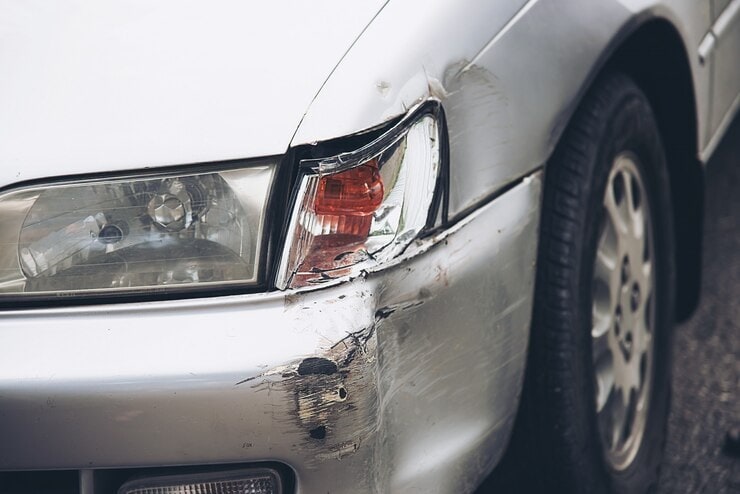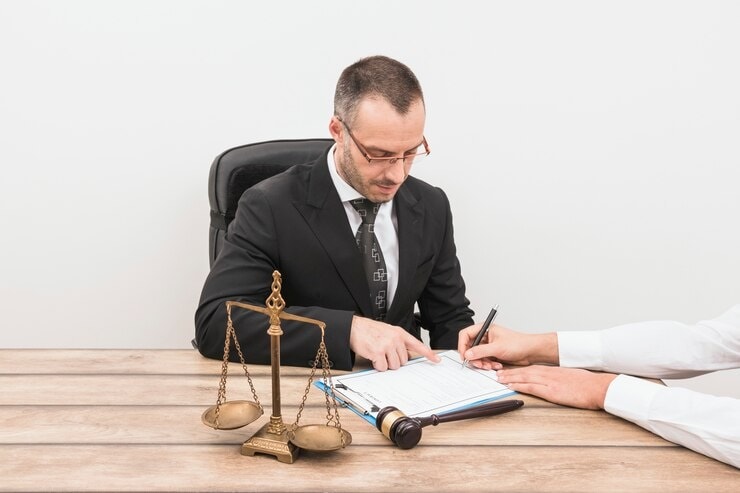
You walk back to your parked car, ready to head home after a long day, only to find an unsightly dent that wasn’t there before. You wonder, “Someone hit my parked car and left – what should I do now?” Don’t worry; you’re not alone in facing this frustrating situation. In this guide, we’ll walk you through the steps to take if you find yourself dealing with a hit-and-run accident, from what to do at the scene to how to handle insurance claims and repairs.
Steps to Take At the Scene
Discovering that someone dented your car and left can be a disheartening experience. However, taking the right steps at the scene can make a significant difference in resolving the situation later. Here’s what you should do:
Stay Calm and Assess the Situation: Before panicking, take a deep breath and assess the damage. Check for any witnesses who might have seen the incident, and note the time and location.
Call the Police: It’s crucial to involve law enforcement immediately. Call the local police department to report the hit and run. An official accident report will be instrumental in the insurance claims process.
Document the Scene: While waiting for the police to arrive, gather as much evidence as possible. Take photos of the damage from various angles, including close-ups and shots that capture the entire scene. Note any tire marks or important details that could help identify the responsible party.
Look for Witnesses: If there are people around who may have witnessed the incident, ask for their contact information. Witness statements can be valuable when dealing with insurance claims.
Check for Security Cameras: Look for security cameras in the vicinity or parking lot that might have captured the incident. If possible, speak to business owners or homeowners in the area to see if they have footage to help identify the other driver.
Collect Identifying Information: If you were fortunate enough to glimpse the other vehicle, note down any identifying information, such as the license plate number, make, model, and color.
Contact Your Insurance Company: Notify your insurance provider as soon as possible. Provide them with all the incident details, including the police report, photos, and any witness statements you collected.
Will Insurance Company Cover Repairs?
One of the most pressing concerns, after someone dents your car and leaves, is whether your insurance will cover the necessary repairs. Here are the key points to consider:
File a Police Report: As mentioned earlier, filing a police report is crucial. This official document helps in potential law enforcement actions and provides a basis for your auto insurance claim.
Contact Your Insurance Company: Once you’ve filed a police report, contact your insurance company. Be prepared to provide them with the incident details, the official accident report, and any other evidence you collected at the scene.
File an Insurance Claim: Your next step is to file an insurance claim. This process involves contacting your insurance company’s claims representative, who will guide you through the necessary steps. Be thorough in explaining the situation and provide all relevant documentation.
Review Your Coverage: Your ability to recover repair costs depends on your coverage type. If you have collision coverage, your insurance company may cover the damages, but you’ll likely need to pay a deductible. On the other hand, uninsured motorist coverage may help cover costs if the other driver is not identified or is uninsured.
Consider Uninsured Motorist Coverage: If the other driver is not identified or doesn’t have insurance, an uninsured motorist claim becomes especially important. This type of coverage can help cover your repair costs and medical expenses.
Underinsured Motorist Coverage: In cases where the other driver is underinsured, whose insurance coverage is insufficient to cover your damages, underinsured motorist coverage can bridge the gap.
What Happens If I Can’t Prove Who Hit My Car?
Proving who hit your car in a hit-and-run car accident can be challenging, but it doesn’t mean you’re out of options. Here are some steps to consider:
File a Police Report: Even if you couldn’t identify the other driver, filing a police report is crucial. This official document records the incident and is a foundation for your insurance claim.
Contact Your Insurance Company: Contact your insurance company and provide them with the police report and any other evidence you gathered. While pinpointing the responsible party may be more challenging, your insurer will guide you through the claims process.
Uninsured Motorist Coverage: Insured motorist coverage can be a saving grace in situations where the other driver is unidentified. This coverage is designed to help you when you’re involved in an accident with an uninsured or hit-and-run driver.
Collaborate with Law Enforcement: Work closely with the police department handling your case. They may conduct further investigations or have access to additional resources that could help identify the other driver.
Seek Legal Advice: If the situation becomes complex, seeking legal advice from a Nevada-based law firm can be beneficial. Experienced attorneys can provide guidance on navigating the legal aspects of hit and run accidents and help you understand your rights.
How Can an Attorney Help?
Navigating a hit and run incident where someone has dented your car and left can be a complex and stressful experience. In such situations, hiring an experienced attorney can be invaluable. Here’s how an attorney can help you through the process:
Legal Expertise: An attorney brings specialized knowledge of personal injury and auto accident laws, guiding you through the legal intricacies inherent in hit and run cases.
Insurance Claims Assistance: Your attorney assists in dealing with insurance companies, offering expertise in gathering documentation necessary for effective and successful claims.
Investigation and Evidence Gathering: Utilizing resources and expertise, your attorney conducts thorough investigations, collaborating with law enforcement and private investigators to gather crucial evidence.
Communication with Law Enforcement: Your attorney liaises with the police department handling your case, ensuring prompt and effective communication throughout the investigative process.
Understanding Insurance Coverage: Reviewing your insurance policies, your attorney identifies relevant coverage types and advises on leveraging policies for repair costs and damages.
Legal Representation in Court: In the event of legal proceedings, your attorney provides courtroom representation, advocating for your rights and presenting a compelling case.

Get Help from a Seasoned Car Accident Attorney at BLG
Discovering that someone dented your car and left is undoubtedly a frustrating experience, but taking prompt and informed action can make a significant difference. By following the steps outlined in this guide, from documenting the scene to involving law enforcement and contacting your insurance company, you can navigate the aftermath of a hit and run more confidently.
Remember, having the right insurance coverage, such as uninsured motorist coverage, can be crucial in ensuring that you’re not left shouldering the financial burden of repairs when the responsible party is unidentified or lacks insurance. In challenging situations, consulting with legal professionals can provide guidance to protect your rights and pursue the compensation you deserve.
If you’ve found yourself in the unfortunate situation of someone denting your car and leaving, don’t hesitate. Contact BLG today for a consultation tailored to your specific case. Our experienced team of attorneys understands the complexities of hit and run cases and is dedicated to ensuring you receive the compensation you deserve.
Contact us today for a free consultation.





